“That’s not who we are as a country and that certainly is not who we are as a party.” Tom Ridge
Tom Ridge isn’t afraid to take on the standard-bearer of his own Republican Party – or mince words when talking about President Trump.
In a wide-ranging, one-on-one Zoom interview last week, Ridge said he was “repulsed” by the Republican president, his words and actions, saying “That’s not who we are as a country and that certainly is not who we are as a party.”
The former two-term Pennsylvania governor and first secretary of homeland security wrote an op-ed in the Philadelphia Inquirer in September declaring that “it’s time to dismiss Donald Trump.” He has been joined by the likes of Cindy McCain, wife of the late Sen. John McCain, who was a close friend of Ridge; as well as a host of former Republican elected officials who have announced their support for Democrat Joe Biden, the former vice president.
Ridge, 75, who now heads Ridge Global, a Washington-based consulting firm, served as Pennsylvania’s 43rd governor before being asked by President George W. Bush to help create and lead a new Department of Homeland Security, following the Sept. 11 attacks.
Ridge served in Vietnam as a staff sergeant in the United States Army before returning to Pennsylvania and earning his J.D. at Dickinson School of Law in 1972. He began his career in private practice, before working as an assistant district attorney in Erie County. In 1982, he won a seat in the U.S. House of Representatives, representing his hometown of Erie and the northwestern corner of Pennsylvania. Twelve years later he became governor.
In 2015, Ridge made headlines when he told NBC’s Chuck Todd that he wouldn’t vote for then-candidate Trump, earning a Twitter rebuke from Trump himself. This year, not only is Ridge not voting for Trump, he is voting for his Democratic opponent.
The following interview has been edited for conciseness and clarity.
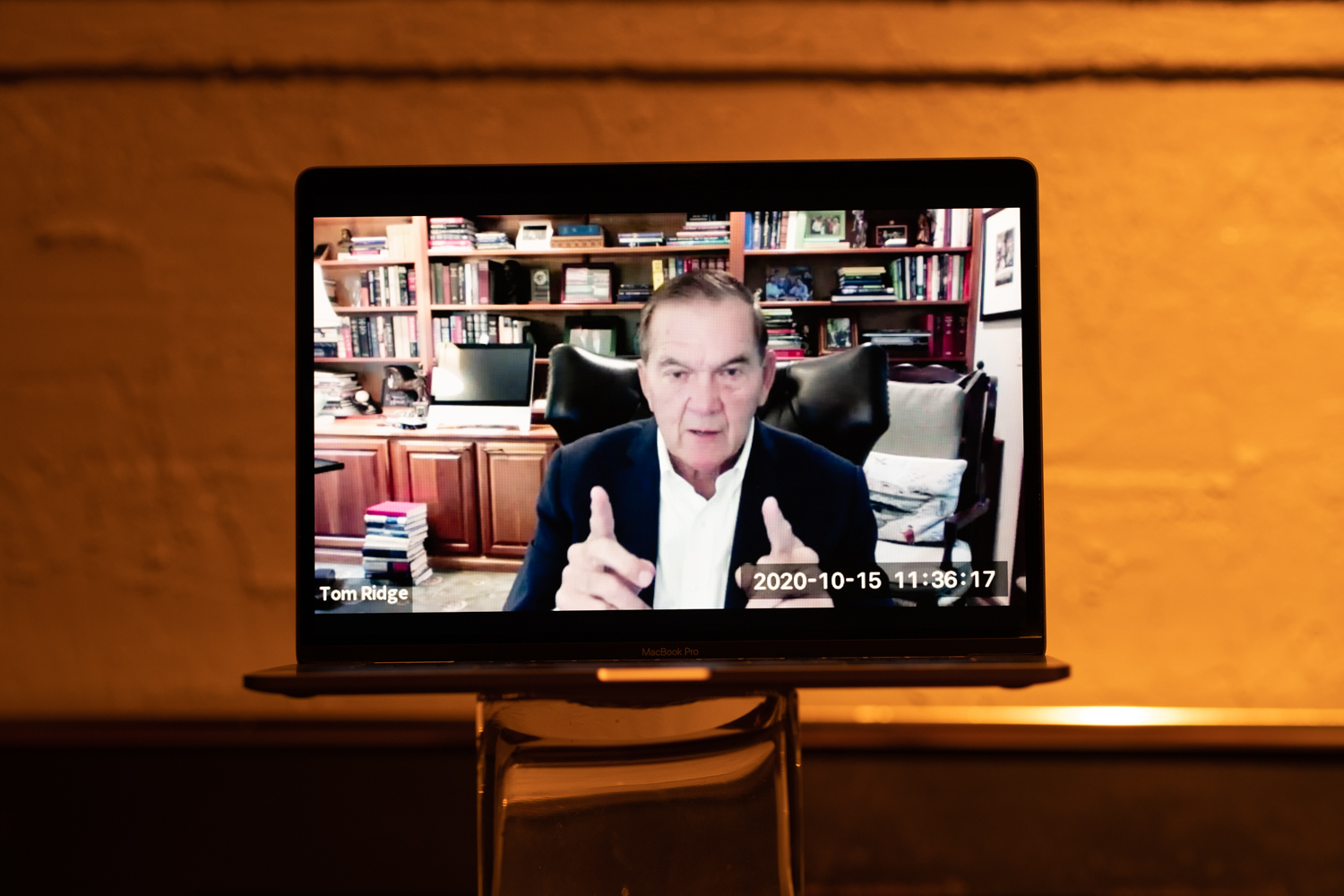
You were one of the first Republicans to come out against then-candidate Trump back in 2016. One of the things you said was Trump cannot unite the Republican Party. He’s now the president looking for re-election. He’s gotten rank-and-file Republicans in the House and Senate to fall behind him, for the most part. Why not support the president?
I was raised in a home that was always country first. The notion that you’re not born a Republican, you’re not born a Democrat; you’re born an American. My mother was a Republican committee woman. My dad was a lifelong Democrat. My problem with President Trump in 2015, and it’s certainly been, I think in my mind, validated with his conduct as president, was … I felt I didn’t see a man who appreciated the institutions of government, who appreciated the process of governing, [someone] who understood that partisanship is part of our world. I didn’t get a sense from some of his initial comments with regard to prisoners of war, Mexicans and others that he had any empathy for other people or other people’s situations. I didn’t get a sense of any humanity in him, and I certainly didn’t get a sense of that as a political figure. While he might be able to compel Republicans interested in winning to him, I just didn’t get a sense that he would be someone who would understand as I did after eight elections when, once you’re elected, your appeal isn’t simply to those who supported you. Your responsibilities [are] for the broader universe, over whom you’ve [been] given the opportunity to serve. So my instincts went with that personal calculus as to his basic beliefs, his basic empathy, his basic respect to the institutions of government. Unfortunately, at least in my mind, my concern has been validated with his conduct and how he’s presented himself not only to America but to the rest of the world as president of the United States.
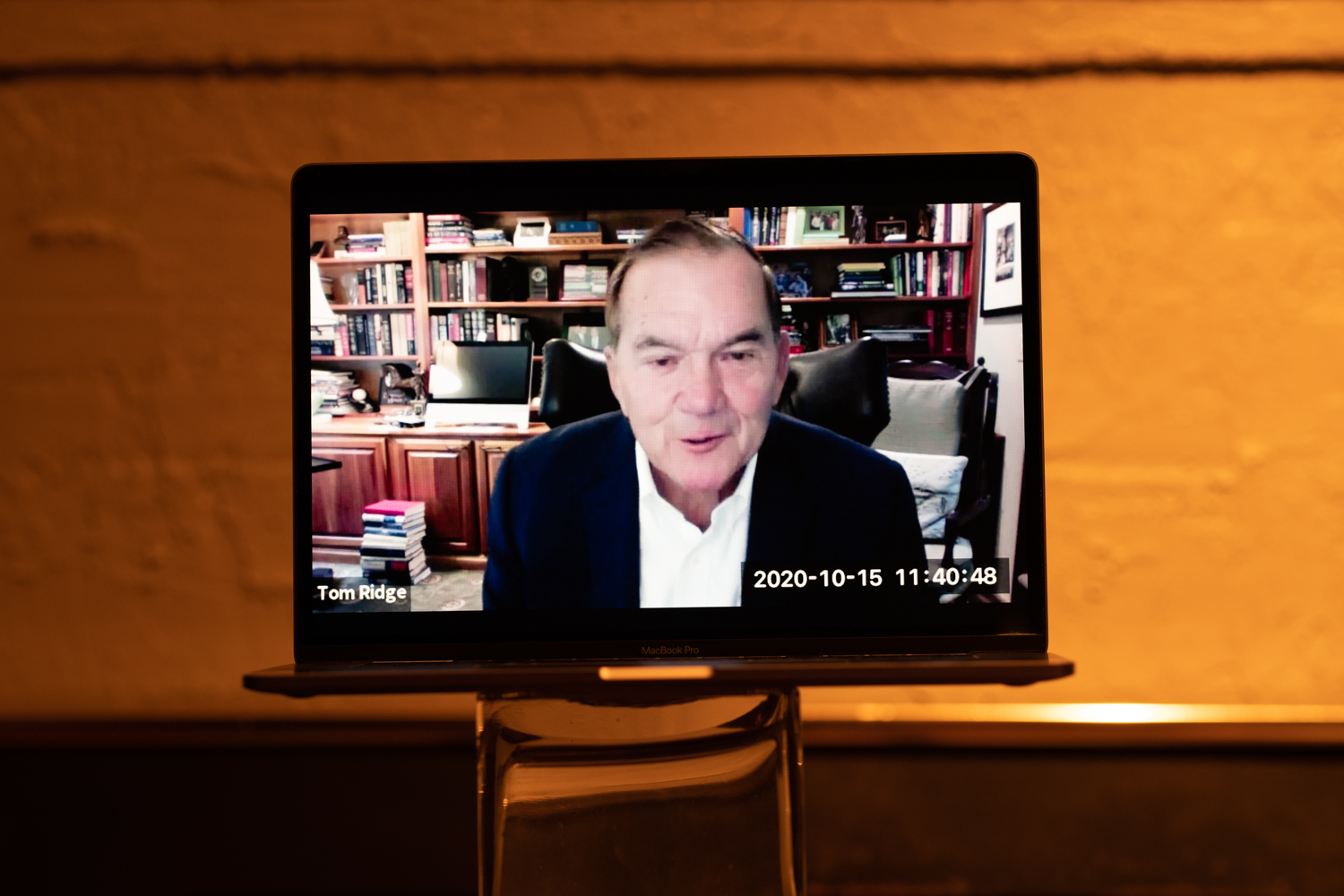
Have you met President Trump?
Yes, I met him once. After an interview in 2015, I think it was in December with Chuck Todd, when he asked me if I’d vote for, if I would support President Trump, I said he’s an embarrassment to my party. It’s the party of Lincoln. He’s an embarrassment to my country. And even if he gets nominated, I’m not going to vote for him. And I saw him early the next year, because I was a big believer in governors being president, so I was supporting at the time Jeb Bush, and I saw him and we had a brief exchange and he expressed regret that I said negative things about him. I went over and introduced myself. Because after I said that on Chuck Todd, he sent out a tweet saying that I was a failed “Bushy” and a failed governor. And I thought that’s again reflective of the character, [of] the man. I’ve been out of office. I haven’t been in the public eye for 10 years. I’m a has-been, I’m a used-to-be. I was a cabinet member, I was a governor. So why are you worried about what I have to say? And so I went over and introduced myself as “the failed governor of Pennsylvania.”
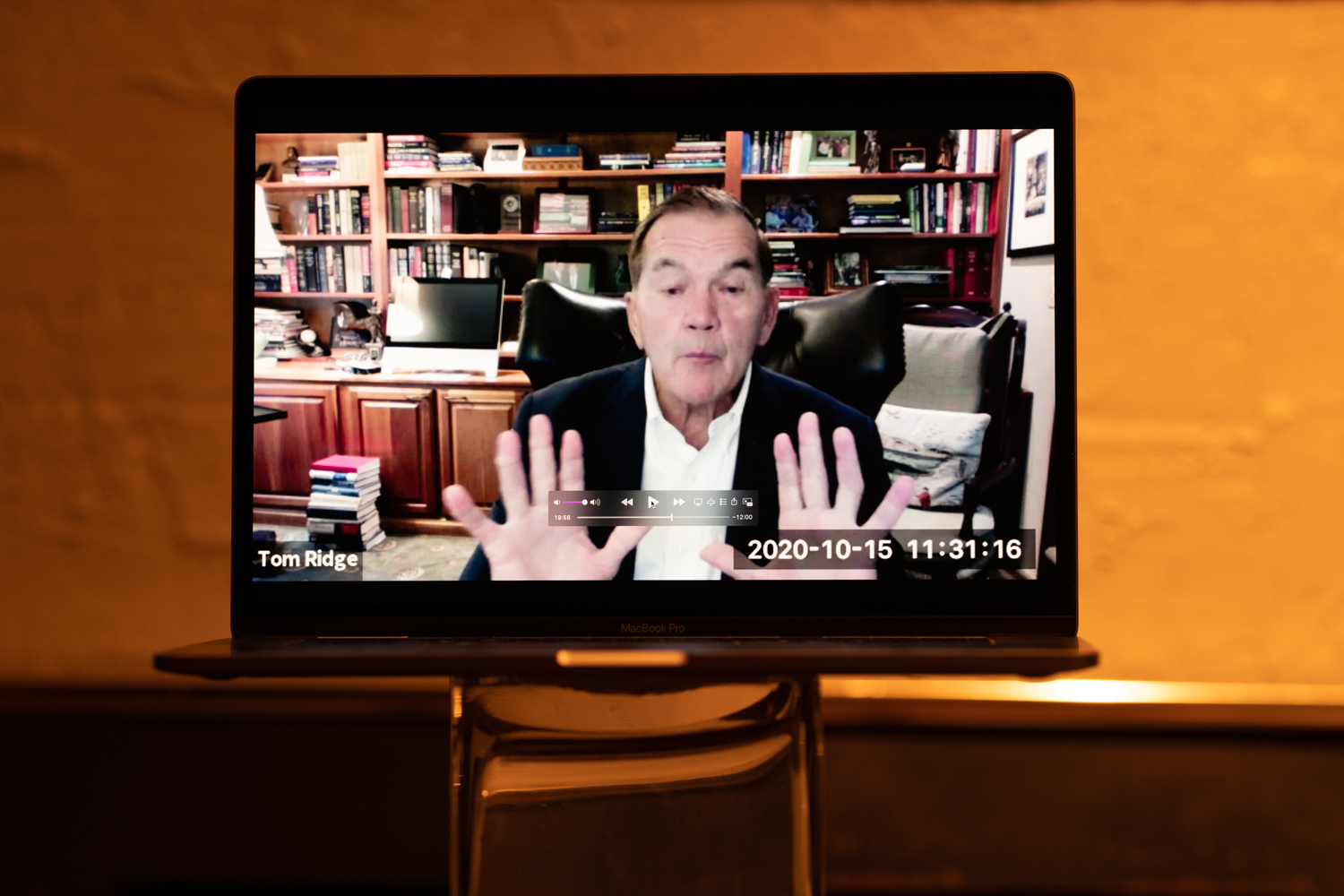
Have you met Vice President Biden?
Yes. I’ve met him several times. Allegheny College in northwestern Pennsylvania several years ago asked me to help them with the presentation of a civility award in Washington, which we’ve done for seven or eight years to pick a partisan, an R and a D to honor respecting their partisanship. But it’s a matter of how they conduct themselves in spite of their political affiliation. I met [Biden] once or twice casually before. But one year they asked me because John McCain is a great friend of mine, I was a pall bearer at his funeral. And he, and Joe Biden, I had seen them at multiple occasions where they introduced each other, and their views were miles apart. But they were mutually respective of each other and the institutions of government. And so I spent an hour with him back in 2015 when I asked him to accept the award with his good friend, John McCain, and he did and we ended up talking for an hour. And even then, it was shortly after his son [Beau] had died and he confided in me, and he said publicly that [the] death of his son weighed so heavily upon him, he chose — he just couldn’t run for president. He had aspirations to run for president in 2016, in spite of Hillary Clinton’s presence. I just have enormous respect for him. He’s got the empathy and the humanity, the respect for the institutions of government, a willingness to reach across the aisle that I thought was absolutely important for the leader of this country.
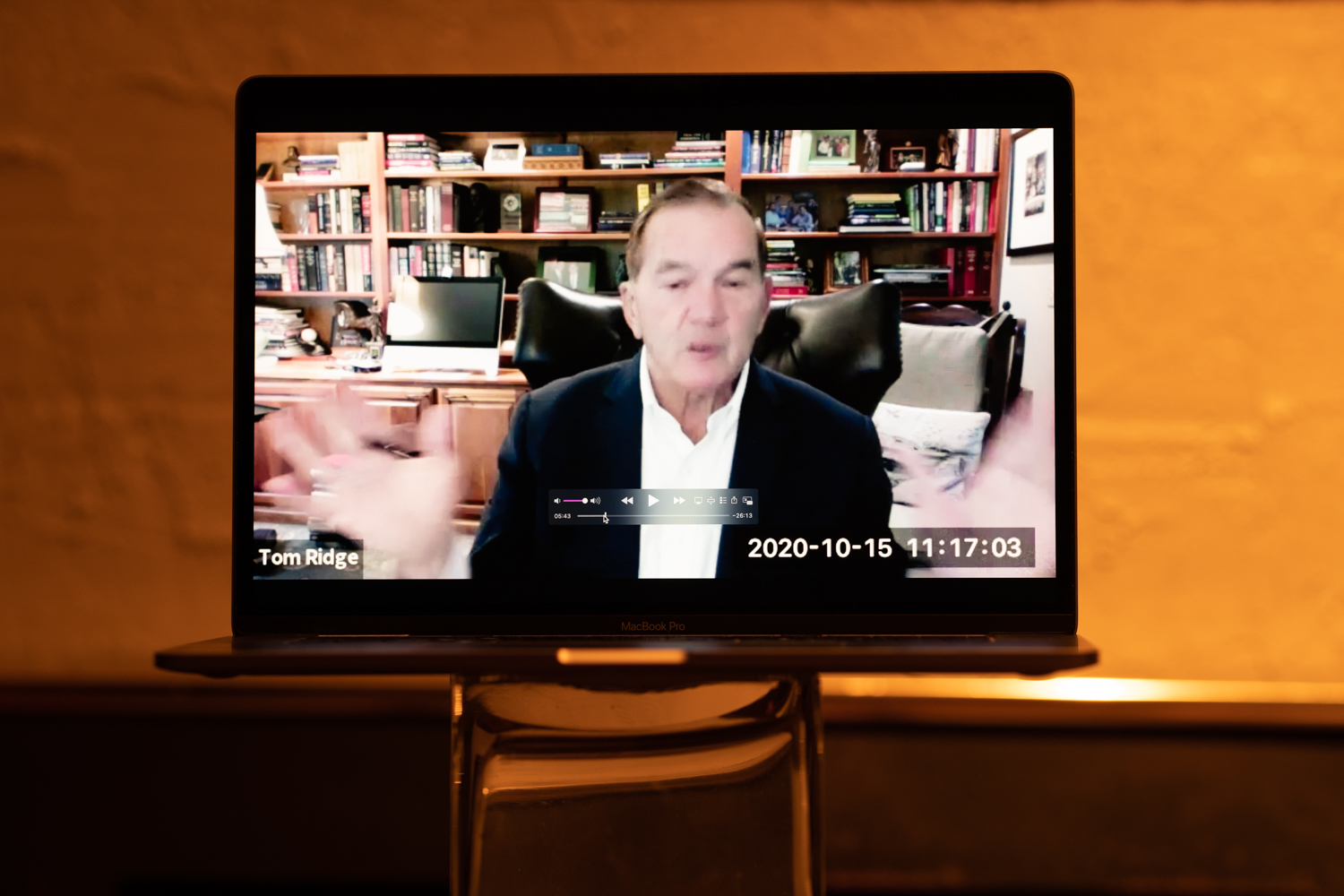
Back in 2016, you did not endorse President Trump. You also did not endorse Hillary Clinton. And now in 2020, you are endorsing Joe Biden and you just spoke about your relationship with him. Is it the quality of the individual, or is it the moment that now you’re facing a possible Trump second term that caused you to endorse the Democratic nominee this time around?
It’s a combination of both. I don’t believe given the president’s alienation of traditional allies, his efforts in a world that is interdependent and interconnected to withdraw from that world. His embrace of some of the political, authoritarian regimes around the world. His dismissive[ness] of the institutions of government. His rhetoric that I think has been divisive on racial and social and even on religious grounds. I mean, so I am repulsed by him. Obviously, I think he’s created a very toxic environment. And had there not been a decent alternative on the other side — there’s a lot of Democrat candidates for president whom I would not have voted for, could not have supported, and I would’ve written the names of … Republican governors. I want your readers to know and the students to know, if I might add an editorial, politics and government is about tomorrow, right? Who you choose today, the local, state and federal level make decisions that will affect tomorrows. You and your classmates have more tomorrows than I do. And yet the people that are my age are more inclined to vote than people of your age. And so I would encourage those who read [this] whether they’re Republicans or Democrats, pro-Trump, pro-Biden, I don’t care. Vote and take it on as a, not as a privilege, but as a civic responsibility, forever.
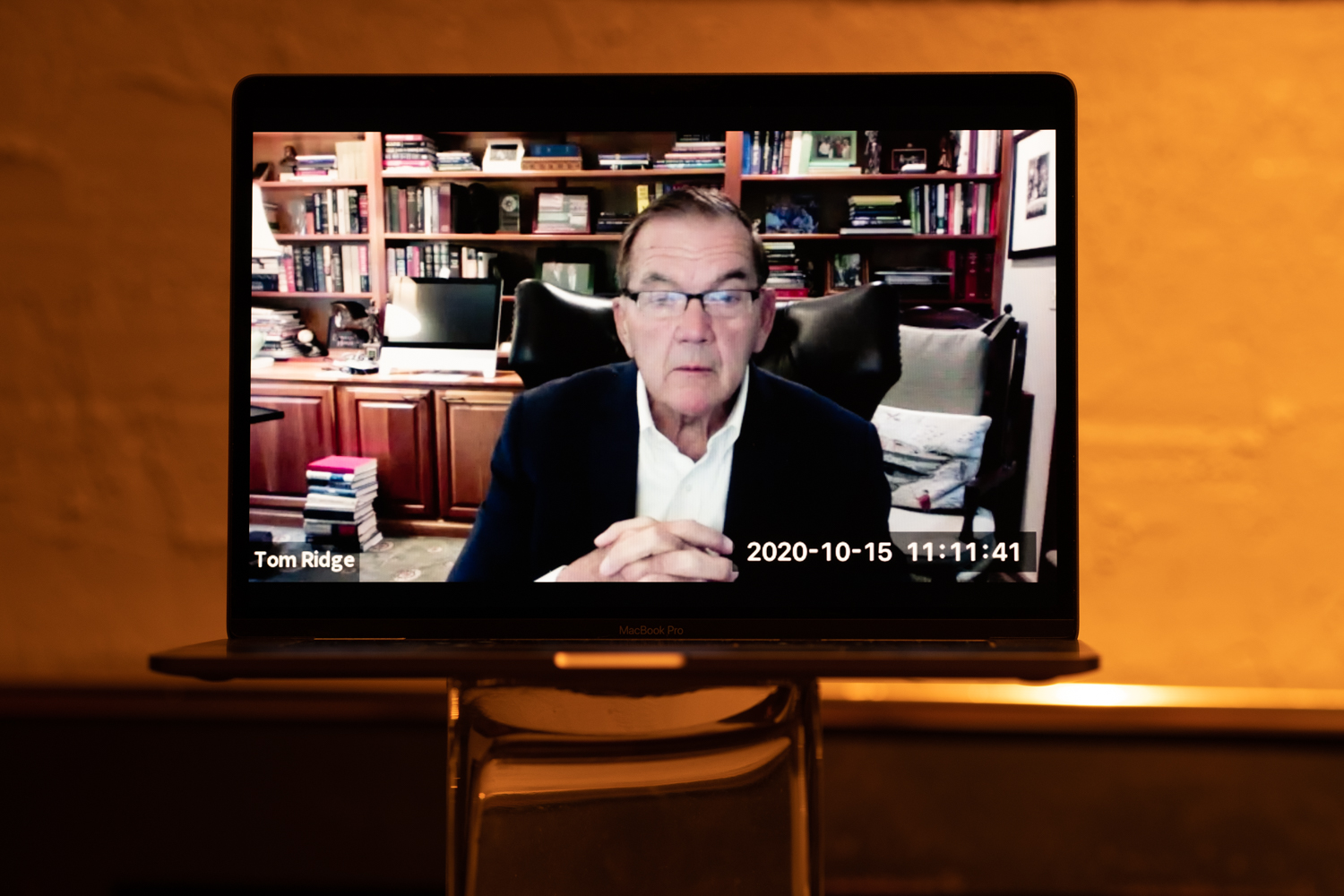
Talking about tomorrow. Hypothetically, if President Trump were to win a second term, what do you think becomes of the Republican Party?
I would be fearful that the party of Lincoln would expire, sadly and tragically expire. He pretty much violated what I thought were some of the basic principles of the Republican Party and four more years of his leadership of the party, I think would pretty much — we may end up being a regional party, but maybe not even go that far. We’ve been so dismissive of the basic principles in dealing with foreign policy, with individual accountability, fiscal responsibility, deficit reduction, the list goes on and on. And most of those principles have gone out the window, it seems to me. I don’t think he’s got a philosophical mindset as he governs, I think it’s much more transactional. And he turns everything into this personal transaction, which is not, I think the best way to go about building long-term relationships that are both domestically getting things done but internationally as well.
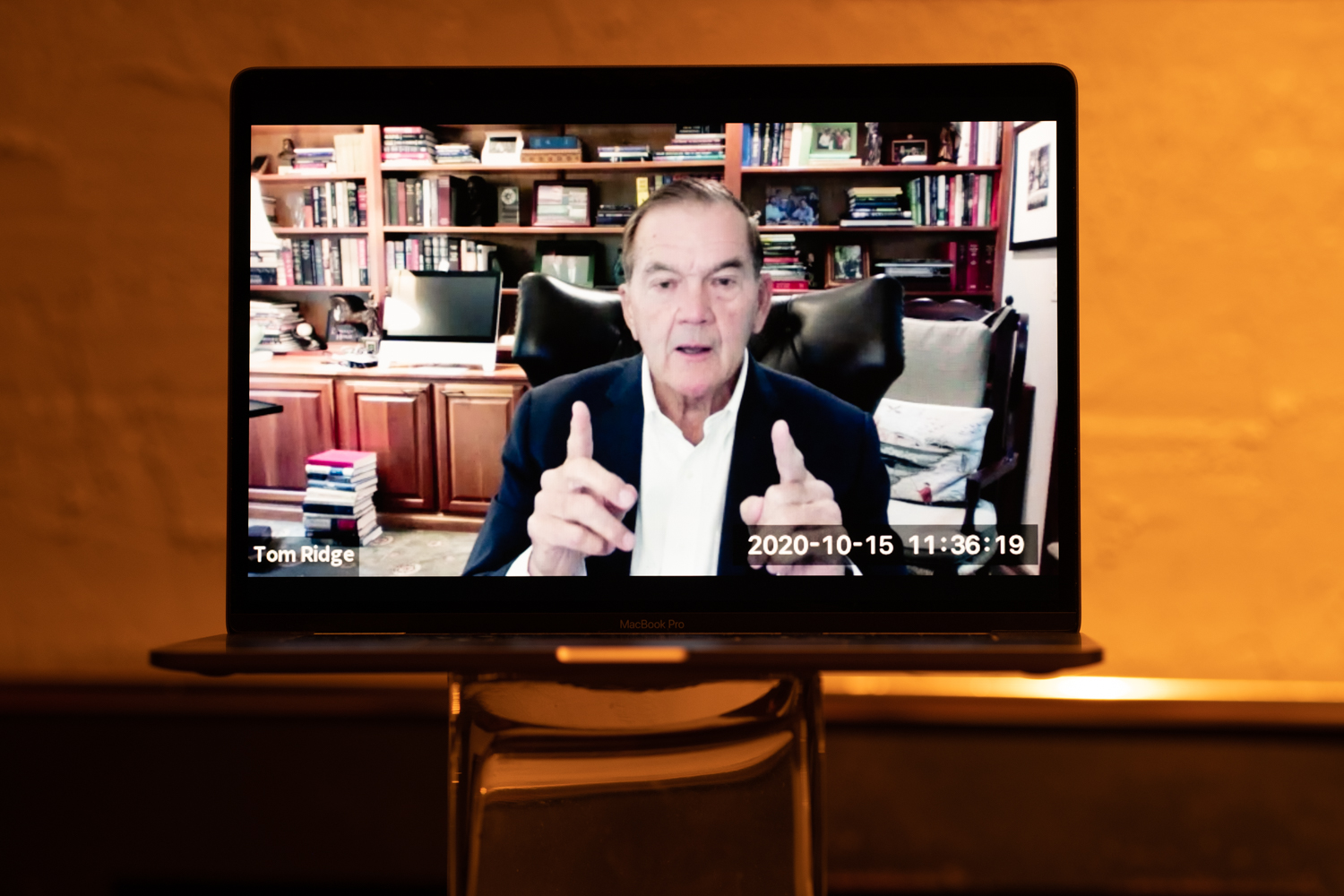
Where then do moderate Republicans go, people who are not supportive of the president?
I’ve had multiple conversations, and I’m not going to violate confidences, with a lot of well-regarded Republicans around the country who are concerned, even if he wins a second [term], about restoring the party around a more basic set of principles. And also tolerating some dissent and differences of opinion within the party. So, the notion that those of us who have been privileged to serve in government and have embraced by and large the philosophy of the Republican Party are going to just sit idly by and just be — just observe the demise of the GOP is a misnomer. There’s enough of us that are concerned about the potential expiration, the demise of the party that we’ve already begun some of those conversations and you’d be surprised at the people with whom I’ve had those conversations. But we’ll wait and see what happens after the election and then move on. But my point of view is not lost on people, even many of whom will support Trump because they’re not comfortable with Biden. I got that. I got one vote. But even those were supporting President Trump are fearful that he’s gotten further and further away from some of the basic principles of the party. So there’ll be a concerted effort internally, and ultimately it’ll probably go public.
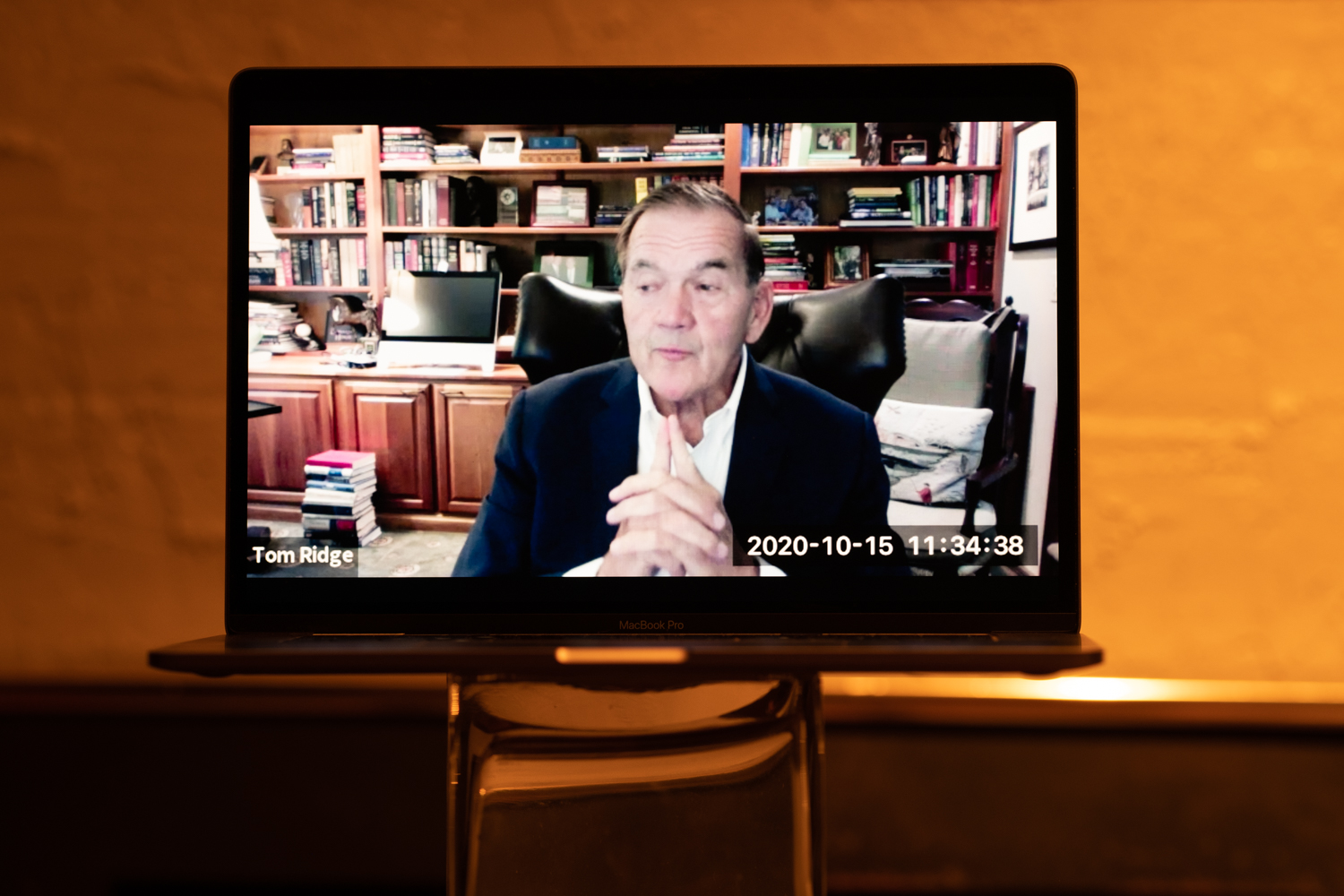
If President Trump is to lose, do you think it will be easier to kind of repudiate that from the party and maybe expedite bringing the party back together?
I’m not going to be able to calculate the ease with which we can get it done because his impact on the party is — it may not be large-scale, but it’s pretty deep. And other people who think like him in the party will take on the challenge. But if it’s all done within the confines of a party that tries to work its way back to basics, I mean, just basic decency. I mean, not the dog whistle to white supremacists that we hear from time to time. Not the questioning of people’s religious beliefs, not challenging opinions, [or the] ethnicity of judges who rendered opinions contrary to your personal point of view. That’s not who we are as a country and that certainly not who we are as a party. So I think his impact, I’m not sure it’s as broad as people might calculate, but it goes too deep, and we have to countervail it in time and I think we could, But four more years, it may be so splintered that we may not be able to put it back together again.
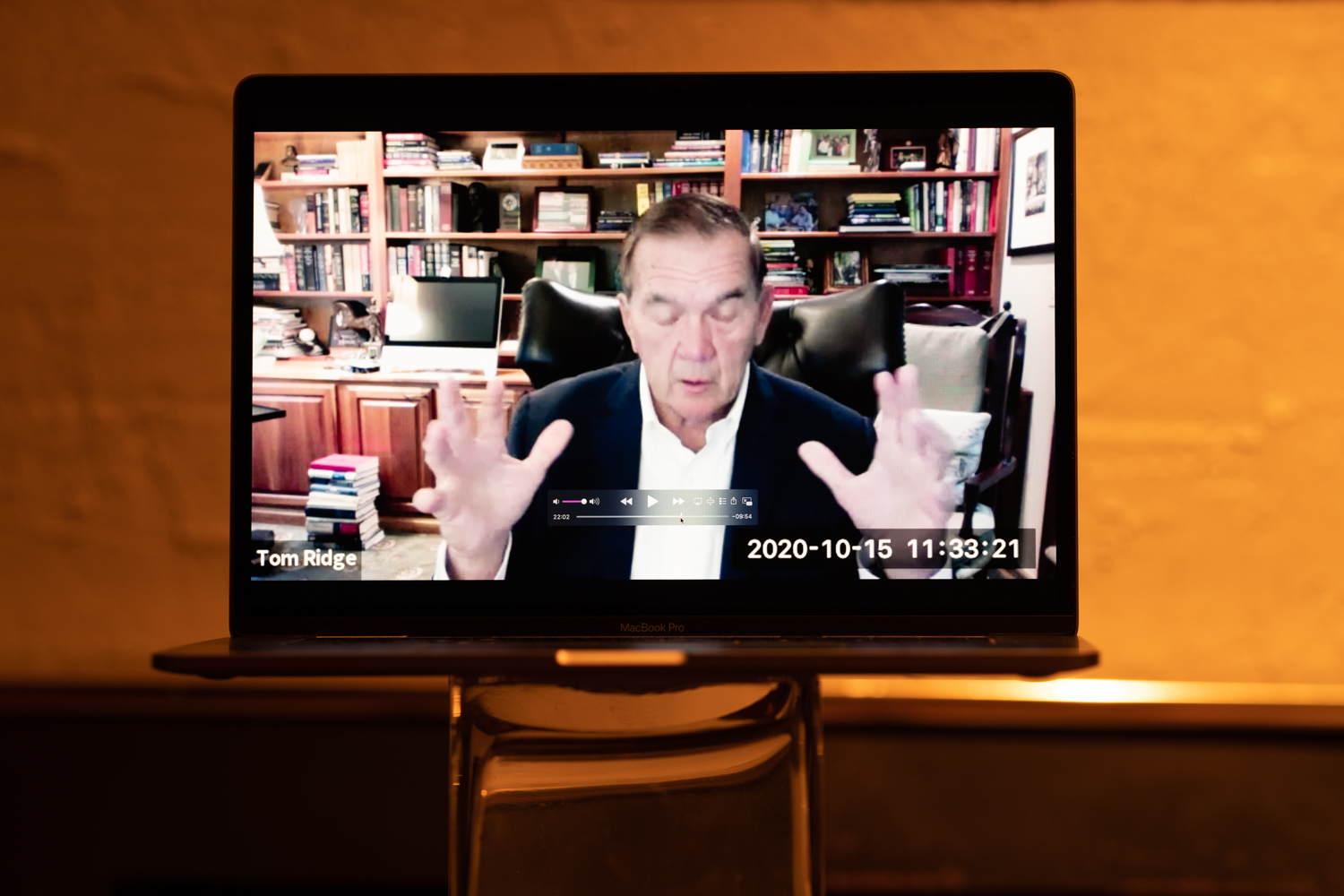
Can you talk a little bit about VoteSafe?
Well, I’m very privileged to work with another public servant, former [Democratic] Governor Jennifer Granholm, tremendous governor, very effective governor of Michigan. Different point of view, different philosophy, a great public servant. And our cause has been to elevate the public discussion and hopefully change opinions around the need in the midst of a pandemic, particularly. News flash, Mr. President, it’s a pandemic — that there are people who are going to choose to vote by absentee. And his effort to discredit absentee balloting and suggest that if the outcome is not known by November 3rd, there’s somehow indication of fraud. So what we’re trying to say and working publicly and I’ve done a lot of public advocacy, obviously, you need two options for voters. Safe and secure in-person balloting opportunities and the absentee. It’s been very well received. But again, the president has sown the seeds of doubt around the legitimacy of the most basic, fundamental institution in self-government. And that’s the election. My goodness. He said there was fraud in 2016, [we] put out a real partisan group and they said, well, there’s no fraud. We’ve got conservative Republican lawyers who have been working within the party for 20, 30 years dealing with election law all the time. We say there’s no historical antecedent. And more importantly, you’ve got men and women at the local level, Republicans and Democrats, who take their job very seriously. [Is] there evidence of fraud? Yet even the Heritage Foundation’s looked at 250 million ballots cast over the past 20 years, I guess in presidential elections and saw a couple hundred cases. But the massive fraud which reversed the outcome of an election, there is no antecedent historically. By the way, absentee ballots, per se, do not give advantage to either party or a candidate. It’s the candidate or party that make sure that the people who want to vote their preferences get the absentee ballots. And one of the ironies there, it’s a couple of ironies, one, the president votes absentee. Vice-president votes absentee, and the Republican Party in Pennsylvania has sent out information about absentee voting to make sure that those Republican voters who don’t want to go to the polls, for whatever reason. I chair the national organization on disabilities. A lot of people with disability vote absentee, the military votes absentee, citizens overseas vote absentee. So his effort to discredit and sow chaos into the system, I find it’s an unbelievable, unimaginable conceit on his behalf to think that the only way he would lose would be through fraud. It hasn’t existed in the past, it’s not going to exist on November 3rd. We just have to be patient.
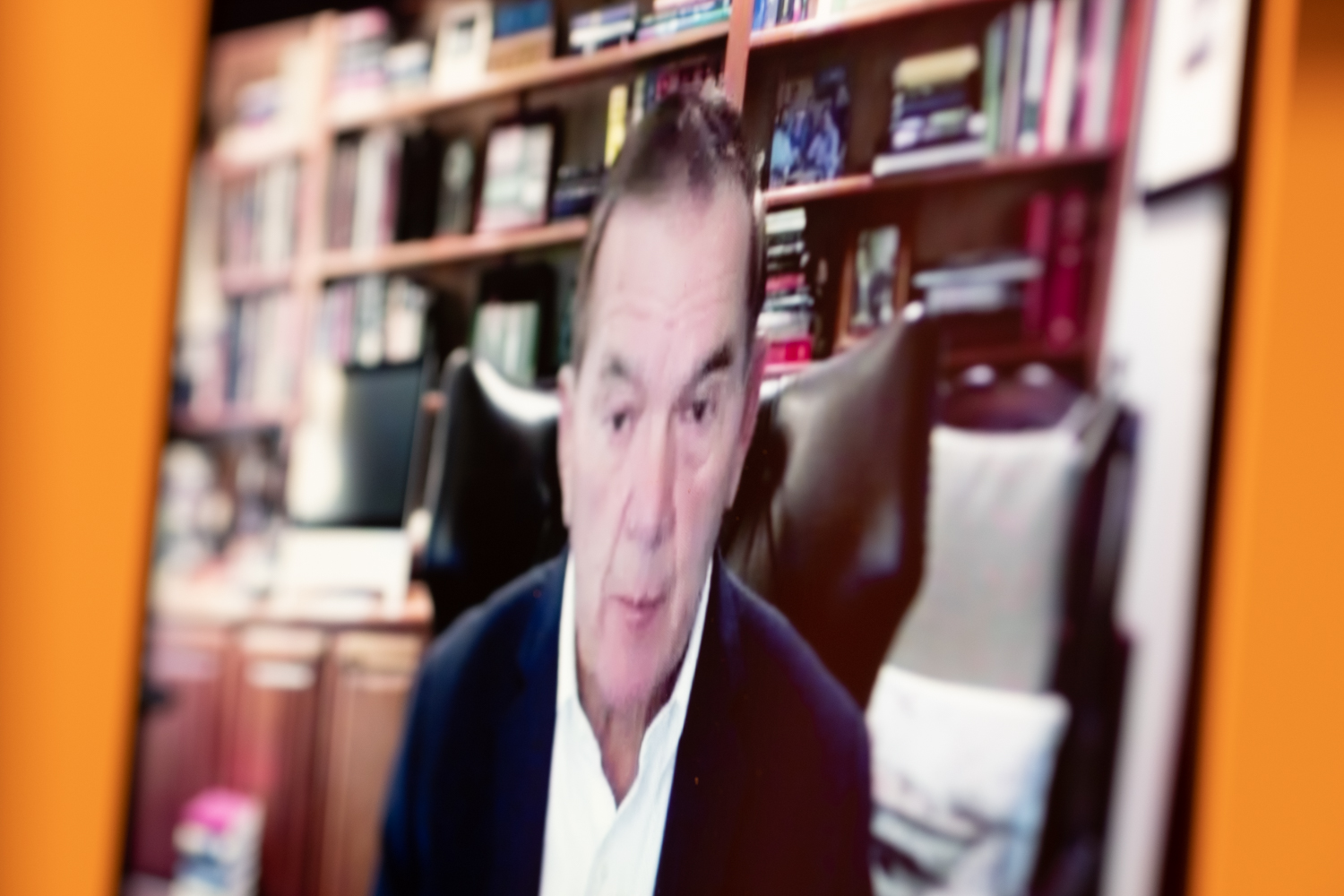
What was the purpose of your public endorsement in the Inquirer a couple of weeks ago? Were you trying to make sure you’re on the record as where you stand, or do you think that there are voters in Pennsylvania, Governor Ridge voters, people that take your preference into account, that might possibly sway how they vote in this election?
The first thing I wanted to do, because I feel so strongly about the importance of this election and the importance of character and leadership within the president, is to make my views known publicly. And the Philadelphia Inquirer gave me that opportunity. I feel strongly enough, if my opinion means anything to anybody and they want a predicate their vote for Vice President Biden based on my personal point of view, I’d be honored. Between the two of us. I doubt it. Because I think most Pennsylvanians, now there’s a majority in the middle that have probably already decided for a variety of reasons, which way they’re going to go. But I will tell you candidly, if it sways some people who are in the middle who are undecided to vote for President Biden, I’d be grateful. But I don’t anticipate a wide shift to support because of people who supported me, necessarily. Be happy if they did. I think this is still a pretty close election in Pennsylvania.
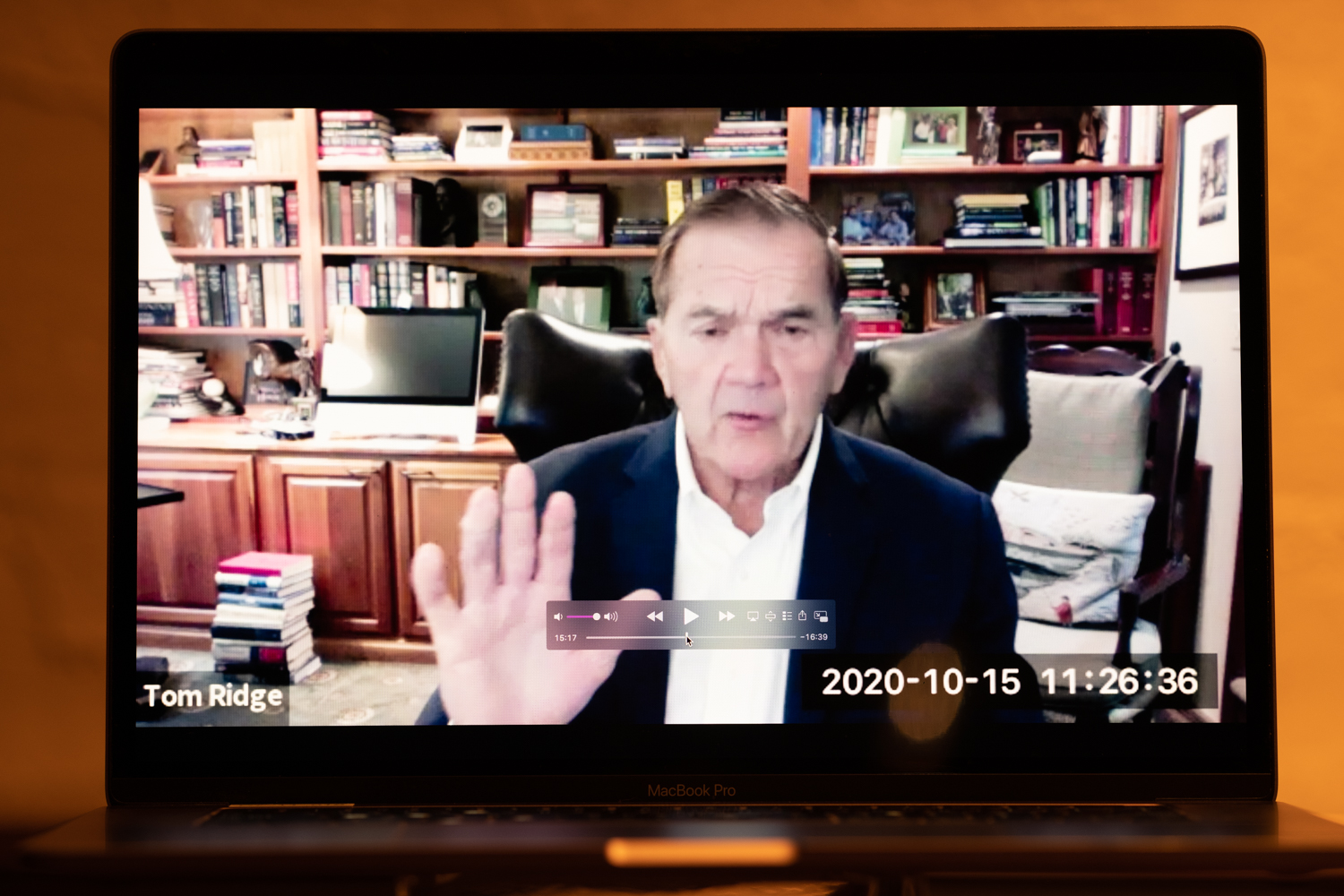
You know Pennsylvania politics pretty well. You won two terms as governor. Do you care to offer a prediction about where Pennsylvania’s going to go? Blue or red?
I see the president’s support in western Pennsylvania. I don’t see much of a diminution. I think, where he has been strong, I don’t think there’s been much of a loss of support. Maybe some of the unions that supported him before, or individual union members might be a little disappointed … and he may see some attrition there. I think this is still going to be close. Turnout and turnout in Philadelphia is going to be critically important. How the suburbs go outside of Philadelphia. I don’t want to get gender specific, but I think polls indicate that he’s lost a lot of support from women who may have supported him in 2016. Maybe [he] hasn’t lived up to their expectations, or maybe his conduct has turned them off. I think it’s close. If the election were held today, I’d probably give a slight nod to Vice President Biden. I think I still think it’s a tossup. Remember, 44,000 thousand votes [decided the race in Pennsylvania]. You don’t have to change much. If my crystal ball was effective, if I was that good, I’d probably just retire and gamble a lot. But I don’t do that.
~ 10.21.2020